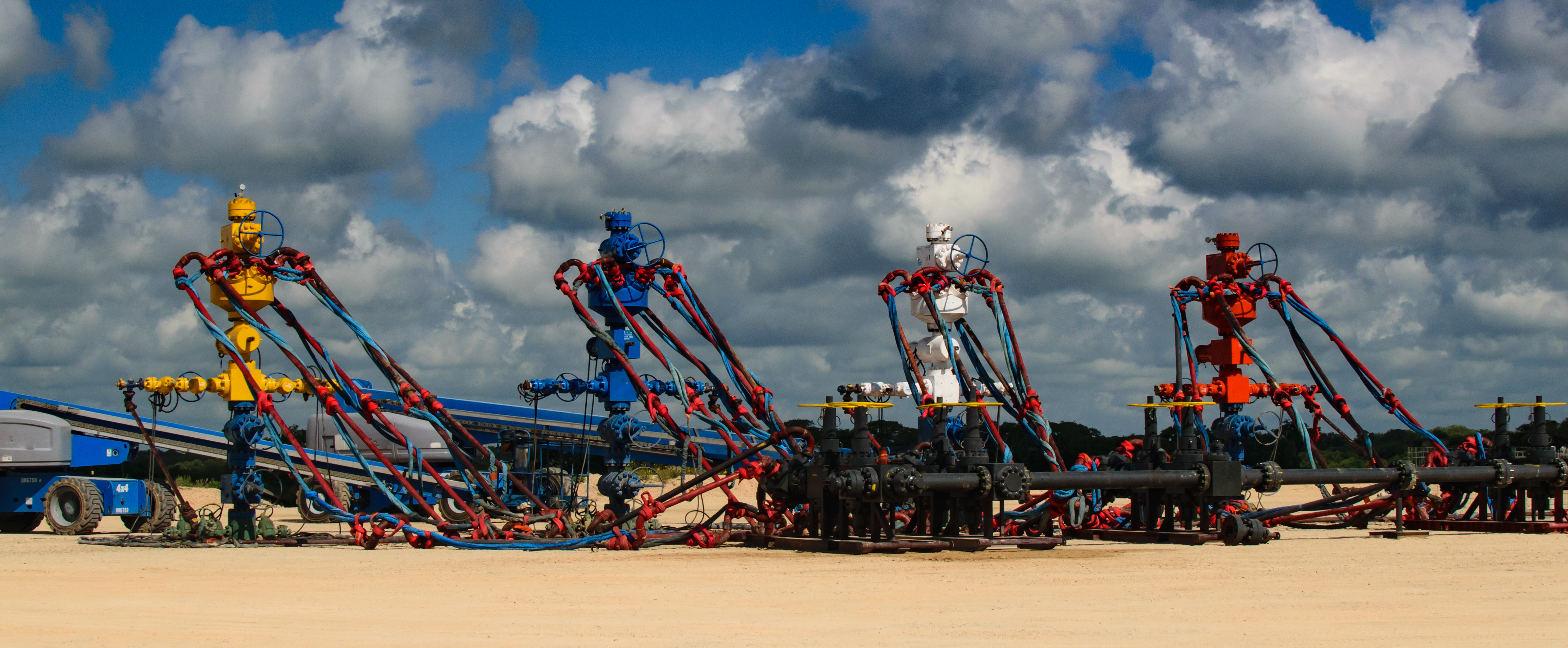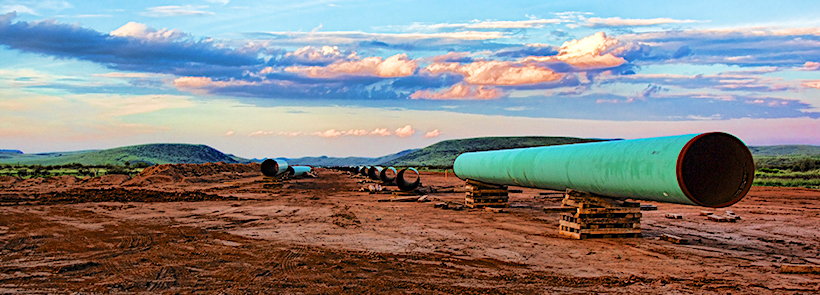Voices from the Trans-Pecos: Exploring Public Opinion on Energy Development
Editor's Note: This is the first of a two-part series by the authors.
The area of Texas west of the Pecos River is known as the Trans-Pecos. It is perhaps best known for the Big Bend and the Rio Grande River, which defines the region’s southern border. It is home to hundreds of thousands of Texans who prize the area’s beautifully rugged landscape, endless open spaces, dark skies, and self-determined small communities.
According to the World Wildlife Fund, it is also the most biodiverse desert area in the Western Hemisphere. And, nearby, the Permian Basin is the most energy intensive geographic region in the United States.
In the wake of the Alpine High discovery by Apache Corporation in late summer 2016, energy development is encroaching on the Trans-Pecos, an area unprepared for large-scale industrial development.
Anticipating possible conflict between energy development and the rural communities of the Trans-Pecos, the Cynthia and George Mitchell Foundation commissioned Hudson Pacific to conduct public opinion research on how energy development in the region is perceived by Texans statewide, with particular focus on area residents’ opinions.
What we learned can help inform a reasoned and thoughtful approach to energy development in the region that helps better align the interests of residents, landowners, and their communities with energy developers and mineral rights holders.

We set out to answer two basic questions
-
How much do Texans know about the energy development taking place in the Trans-Pecos?
- What do Texans think about it? Do they see it as an economic opportunity for their communities? Do they have concerns about impacts to their short- and long-term way of life?
We explored these primary questions in two phases:
Phase One: residents in the region, who are the focus of this piece, and
Phase Two: Texans statewide, whose opinions will be detailed in a companion blog post.
In this first phase of our research, we conducted a series of six focus groups with a diverse mix of residents of the communities of Alpine, Fort Davis, and Balmorhea/Pecos.
|
TRANS-PECOS OPINION RESEARCH PROJECT |
|
|
PHASE I
|
PHASE II
|

The Alpine Community
When it comes to awareness of energy development in the Trans-Pecos, proximity matters. The people of Alpine, who are removed from energy development in the Permian Basin, focused on the solar installations on the outskirts of town and the pipeline that was built in their community recently.
The Fort Davis Community
Fort Davis residents were somewhat more aware of actions related to the Alpine High discovery, although their attention was focused more on the oil and gas development to their northeast in the Midland-Odessa region.
The Balmorhea and Pecos Communities
The residents of Balmorhea and Pecos shared how they are experiencing the impacts of energy development right now. But even among those who are closest to it, awareness of the biggest find in the region, the Alpine High, continues to be non-existent more than two years later.
“You may not know Alpine High, but a lot of people know about the fracking that’s going on up in Balmorhea. There is a lot of talk about that, at least in the circles that I move in….”
Trans-Pecos Residents' General Comments
Generally, we found that residents of the Trans-Pecos are resigned to energy development in their area. As one participant put it, “you know you live in Texas, right?” They express frustration at a lack of reliable sources of information—they lament the loss of reliable local news sources—as well as not having a voice in the process, either directly or through their elected representatives.
We heard that energy companies had convened meetings in their towns to explain what was happening; however, they felt that key decisions had already been made. Leaders were neither listening nor asking for input on how development can coexist with communities. Instead, they were simply outlining what was already a “done deal.” And, while residents expect local leaders and elected officials to advocate for them and help coordinate development activities to limit impact on communities, they see most efforts as ineffective or having significant conflicts of interest.
“That’s definitely our city council and city managers. They’re not doing their job.”
“Now here’s the guy who said he’s leery of government getting involved, but I think the city fathers ought to be involved and ought to be speaking for us, and they ought to be listening to us when we talk to them about what—they’re our employees.“
“I think there’s so many conflicts of interest you can’t get anywhere. That’s what the problem has been from the beginning.”

Trans-Pecos Residents' Perceptions
In terms of the perceived downsides, we heard the most concern about traffic. Although this may seem surprising, on average, one person is killed daily on the roads congested with heaviest energy-related traffic. For those in the Balmorhea/Pecos area, they say they experience the impacts in real time, whether it’s noise, structural damage to their homes, energy industry truck traffic on their roads, or shortages of and inflation in the price of every day goods such as gasoline and groceries.
People also express concern about development’s impact on natural resources—the water supply, Balmorhea pool, and the potential for water contamination. Environmental impacts also could deter tourism, which residents see as a critical part of their respective local economies.
“When I decided to move here…. One of the attractions and one of the things that I looked at was what’s the water source, ‘Oh, aquifer.’ There’s a college, ‘oh good.’ There’s a little emergency room/hospital, ‘oh good.’ What’s the population, and how long has the population been 6,000? A long time, and that’s a big attraction to me.”
“This is a tourist community, and guess what? Tourists aren’t going to want to come if they have to dodge trucks and pull over and wait…and it’s ugly…because it’s beautiful now. They come here because it’s beautiful and there’s stuff to do.”
“I gave the impression that I want to see growth, [but] I’m not saying, ‘Oh, let’s be our own Fort Stockton.’ No, not at all, but the town needs an income, and the income isn’t ranching anymore. It’s absolutely tourism. That is what’s going on here. Now, you start putting oil fracking and that kind of thing, that changes the whole flavor of Alpine.”

Residents of the Trans-Pecos are an independent bunch. They live there for a reason and, even in the face of potential impacts from energy development, they are loath to see government play a larger role in the area. That said, they have a pretty clear idea of what they would like to see.
Residents would like to see more thoughtful short- and long-term planning, and they would like to have a bigger, meaningful say in that planning—which begins with improved information about what is happening in the region.
“Yeah, it’s the city council. You can go to the meetings, but the city council, they really don’t listen, I don’t think.”
“Don’t just give people a voice to hear what they have to say; act on what they say and develop empathy for the local people and not just your bottom line because you’re a public corporation.”
Residents also said that planning should include making sure the area’s infrastructure is sufficient to meet the scale and scope of the planned development.
“The infrastructure is not holding up to what’s going on. You don’t have the civic leaders in place that you should that are one step ahead of the game.”
“It’s hypothetical and speculative, of course, but I think that if the people in the right place had been doing their due diligence then, hopefully, you would have had a less tremendous type of effect on the area.”
Residents also would like to see a standard implemented, “mitigation plus”—anticipating and preventing negative impacts and restoring lands to their original state.
“Maybe they could leave the place better than they found it. How about that idea?”
“I think they should at least restore what they damage and be absolutely culpable for it, for instance, roads or other things that they might on the way.”
Area residents are acutely aware that energy development is in motion, and they are resigned to fight it. However, they expect it to happen in a way that makes sense for the long-term health and benefit of their communities and their own quality of life.
David V. Iannelli and Amber N. Ott are founding partners of Hudson Pacific, a data-driven public affairs consulting firm. Hudson Pacific studies public attitudes, using opinion research and behavioral analysis, and use the insights they gather to help companies and organizations design effective communications and public engagement strategies.
Editor's note: The views expressed by contributors to the Cynthia and George Mitchell Foundation's blogging initiative, "Actionable Solutions for a New West Texas" are those of the author and do not necessarily represent the views of the foundation. The foundation works as an engine of change in both policy and practice, supporting high-impact projects at the nexus of environmental protection, social equity, and economic vibrancy. Follow the Mitchell Foundation on Facebook and Twitter, and sign up for regular updates from the foundation.


Hide Full Index
Show Full Index
View All Blog Posts